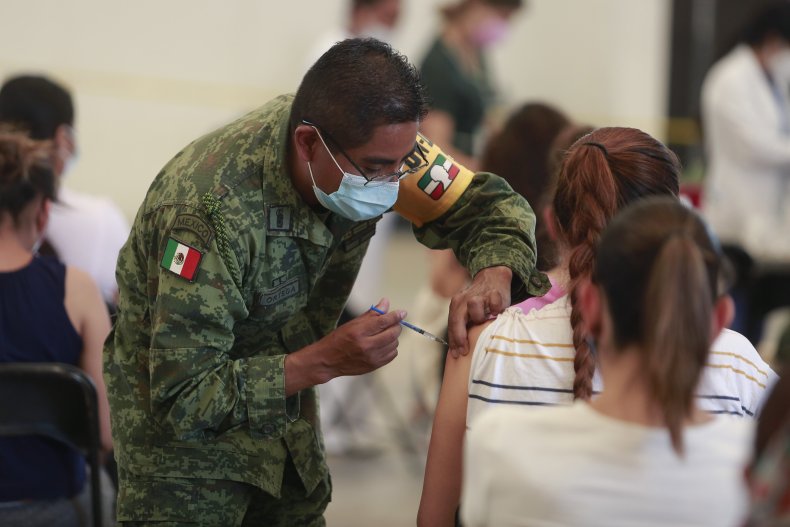Mexico Reports First Case of Black Fungus in Recovering COVID Patient
Mexico has reported what is thought to be the country's first recorded case of so-called "black fungus" in a recovering COVID-19 patient.
In a statement on Thursday, Mexican Undersecretary of Prevention and Health Promotion Hugo López-Gatell said a case of black fungus, also called mucormycosis, had been detected in a 34-year-old male patient in the State of Mexico. The patient was recovering from COVID-19.
The patient is reported as being in poor health due to the fast spread of the infection and is at risk of losing an eye, according to Mexican news outlet The Herald of Saltillo.
López-Gatell said the case was "very sad" and pointed out cases affect people whose immune systems are compromised.
He tweeted Thursday evening, translated from Spanish: "The black fungus or mucormycosis is an aggressive and opportunistic infection in people with severe immunosuppression; it typically affects people with blood cancers during chemotherapy. Fortunately it is rare.
"COVID-19 does not necessarily increase the risk of mucormycosis, but the excessive use of steroids for treatment may be the cause that patients with the SARS-CoV-2 virus have this infection."
El hongo negro o mucormicosis es una infección agresiva y oportunista en personas con inmunosupresión grave; típicamente afecta a personas con cánceres sanguíneos durante la quimioterapia. Afortunadamente es poco frecuente. 1/2 pic.twitter.com/k47xdniGkb
— Hugo López-Gatell Ramírez (@HLGatell) June 3, 2021
Mucormycosis is widely reported to have been affecting COVID-19 patients in India.
The U.S. Centers for Disease Control and Prevention (CDC) calls mucormycosis "serious but rare." One review of published cases found an overall mortality rate of 54 percent, the CDC states.
The condition is caused by fungal spores that live in the environment. It mainly affects people who come into contact with these spores at a time when their body's immune system is weakened.
The CDC states that certain groups of people are more at risk of catching the disease than others. This includes people with diabetes, cancer, those who have had an organ or stem cell transplant, and people with neutropenia—a low number of white blood cells.
Multiple reports have also pointed to the use of steroids as a potential driving force behind the spread of mucormycosis in India, since some types may help fight COVID-19 while reducing the activity of the immune system.
Forbes magazine has referred to this as the prevailing hypothesis, though it cites Dr. SP Kalantri, professor of medicine at the Mahatma Gandhi Institute of Medical Sciences, as questioning it on the basis that such high cases were not seen in India before April.
On May 26, Sadananda Gowda, India's union minister for chemicals and fertilizers, tweeted that 11,717 patients were being treated for mucormycosis across the country. Amphotericin B, an antifungal medication used to treat infections, is running low in India.
Additional 29,250 vials of #Amphotericin- B drug, used in treatment of #Mucormycosis, have been allocated to all the States/UTs today.
— Sadananda Gowda (@DVSadanandGowda) May 26, 2021
The allocation has been made based on the number of patients under treatment which is 11,717 across the country.#blackfungus#AmphotericinB pic.twitter.com/j0LyR6GLjH
The CDC states the exact number of cases in the U.S. is "difficult to determine" because no national surveillance exists, but it is thought to be rare.


